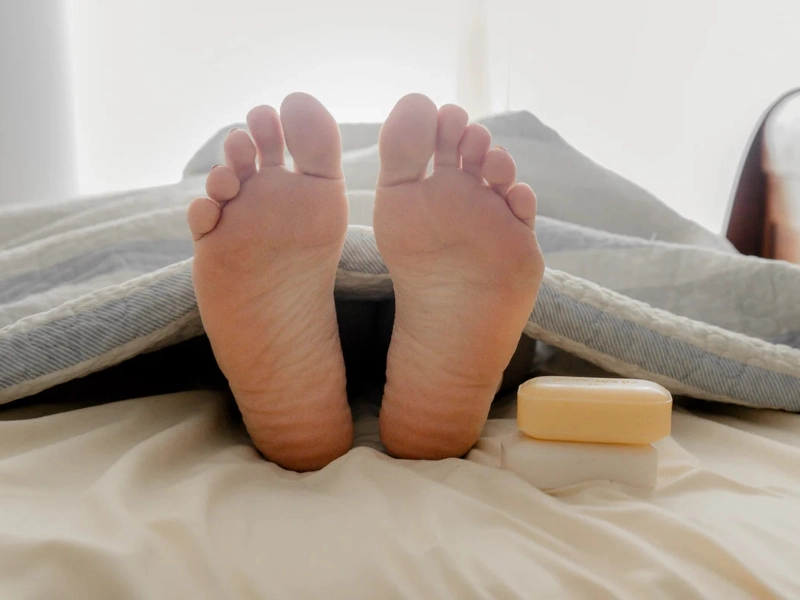The Bedtime Hack That's Changing Lives: Soap Under Your Sheets?
Advertisement
6. Skepticism and Criticism: Addressing the Doubts

Advertisement
Notwithstanding its popularity, the soap under sheets hack has drawn a lot of doubt and criticism from many directions, especially in the medical and scientific sectors. Lack of actual data backing the technique worries many scholars and medical practitioners. They contend that the anecdotal accounts of effectiveness could be ascribed to other elements unrelated to the soap itself, including contemporaneous lifestyle changes or natural fluctuation of symptoms.One of the main objections is the lack of a convincing biological mechanism to explain how soap under the sheets could influence restless legs syndrome or muscular cramps. Skeptics argue that the skin barrier is rather good in blocking the absorption of most chemicals, so it is improbable that any component of the soap could find their way into the bloodstream in appreciable levels. Moreover, they contend that even in trace levels, it is unlikely that they would affect muscular performance or neuronal signaling.The discrepancy in the kinds of soap said to be successful adds still another issue of disagreement. Critics contend that this variety compromises the idea of a single active ingredient or property being responsible for the claimed benefits since users claim success with everything from expensive aromatherapy bars to plain, unscented soaps. If the soap were really powerful, they propose that the kinds of soap that offer relief would probably be more consistent.Often mentioned as a more likely reason for the apparent advantages of the soap hack is the possibility for the placebo effect. Although the placebo effect can cause actual symptom relief, some doctors worry that depending too much on such approaches will discourage people from pursuing more tried-and-true, evidence-based treatments for their leg problems or sleep disorders. They fear that the popularity of this hack would cause some people to postpone appropriate medical examination and treatment.Critics also draw attention to the possibility of nocebo effects, unfavorable results brought on by the prospect of damage. Promoting untested treatments like the soap hack, they contend, could cause unwarranted concern or disappointment for individuals without relief, therefore aggravating their sleep problems. Furthermore, emphasizing such unusual approaches raises concerns about diverting resources and attention from research into more likely cures for sleep problems.Some critics draw attention to the possibility for financial exploitation since businesses have started advertising specialist "Sleep soaps" at luxury rates. They contend that this commercializing of an unproven cure exploits people's yearning for treatment from sleep-related problems. This critique also applies to the larger alternative medicine sector, which some believe gains from unsupported assertions and placebo effects.Notwithstanding these objections, supporters of the soap hack contend that for people suffering with sleep problems, its low cost, lack of side effects, and possible for benefit make it a harmless alternative worth trying. They argue that many users' reported subjective gains shouldn't be discounted completely even if the mechanism is not completely known. This argument emphasizes the continuous conflict in resolving health issues between traditional medical methods and alternative or complementary techniques.
You May Like
Advertisement

